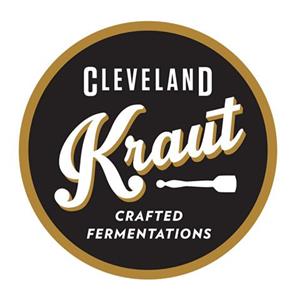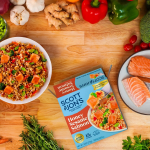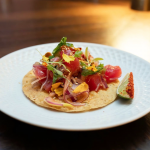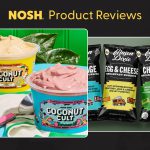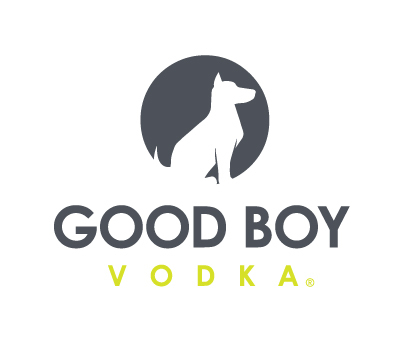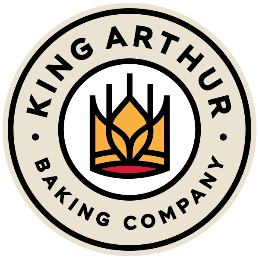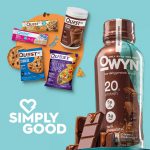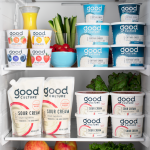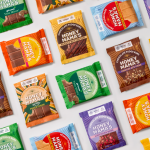Cleveland Kitchen Details $19M Investment, Acquisition & New Product Launches
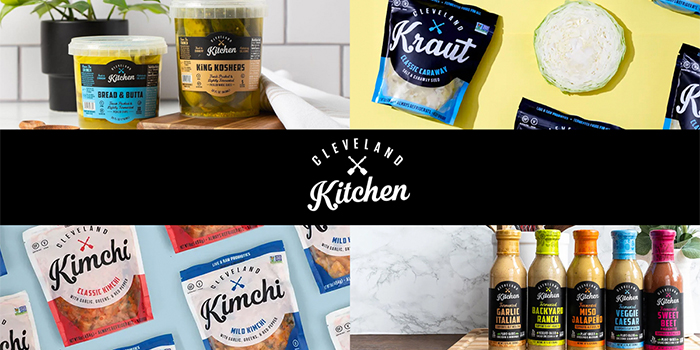
Fermented foods company Cleveland Kitchen announced today it has raised an additional $19 million, as well as completed the acquisition of Sonoma Brinery. The deals will allow the company to more aggressively pursue expansion into new products and manufacturing capabilities.
Both deals were completed in February, though the company hasn’t commented until now. The raise was co-led by Amberstone, a venture firm focused on the CPG space, along with Korea-based CJ Group, the world’s leading producer of kimchi. Existing investors Clover Vitality and Cabbage Inc, which is one of the country’s largest cabbage grower, also took part.
“There’s a lot of capital out there. But we want to bring in the right partners that we can work with, and we could learn from, and we can grow with,” Cleveland Kitchen CEO and co-founder Drew Anderson said. “We’re pretty selective about who we work with and so far, so good.”
The funding, which brings Cleveland Kitchen’s total capital raised to roughly $24 million, will be used to expand the company’s R&D, manufacturing, marketing, sales and hiring efforts.
In February, Cleveland Kitchen acquired Healdsburg, California-based pickle and sauerkraut producer Sonoma Brinery, which sells its products in roughly 1,500 stores.
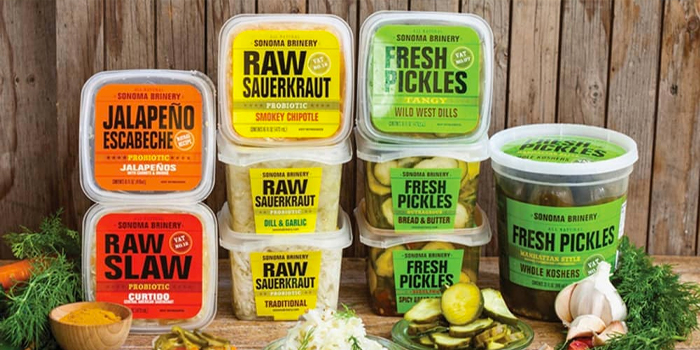
That brand, which takes more than half its revenue from pickles, aligns with Cleveland Kitchen’s own rapid growth in the category. Originally developed in response to a request from a Walmart buyer, its pickles line launched in July 2021 in 1,400 doors and now includes spears, chips and whole pickles in several flavors.
“We think [Sonoma Brinery] has the best pickle in the market. They’re crunchy, delicious, they’re vibrant, and they have 17 years of fermentation science, pickling knowledge and a really, really excellent team out West,” Anderson said. “It was a way to get into the market a little quicker, to have that knowledge immediately and it was an investment in proprietary know-how.”
Terms of the deal were not disclosed, though Anderson said all debts had been settled before the close of the transaction and that Sonoma Brinery was a profitable business. Cleveland Kitchen acquired the company’s brand, recipes and manufacturing equipment, retaining all 50 Sonoma employees while shifting operations to a new West Coast pickling hub in Santa Rosa, California.
Cleveland Kitchen plans to retain the Sonoma Brinery brand and product line, but has shifted the company’s sauerkraut production over to its own headquarters in Cleveland.
Sonoma Brinery founder Dave Ehreth, who also has been a mentor of Anderson, has agreed to stay on as consultant to the company, and will maintain a small equity stake in the larger company. Most of the company’s employees were in production, with Ehreth acting as CEO as well as head of R&D, operations and sales.
Overall Cleveland Kitchen has seen 60% growth year-to-date, and is set to grow 100% YOY in 2022, with its products sold in 14,000 locations nationwide including Whole Foods Market, Sprouts, Walmart, Kroger, Sam’s Club, and Publix.
To go deeper in the pickle category, the company’s biggest piece of innovation in 2022 will be the launch of a single serve pickle. Cleveland Kitchen initially showed a single serve kraut product at Expo East 2019, but ultimately found production (particularly packaging) too difficult to commercialize. Launched in time for back to school, Anderson said the single-serve pickle will make Cleveland Kitchen the first producer to offer retailers both multi-serve and grab-and-go pickle options.
As customers continue to turn towards fresh foods sold in the perimeter of the store, investors have taken note. In the last year and a half pickle brand Grillos was sold to King’s Hawaiian and Fermented Food Holdings acquired both fermented food brand Wildbrine and sauerkraut producer Bubbies in order to build a fermentation-oriented platform. None of these companies self-manufacture though, Anderson said, and the goal with this recent deal was not to just gain a brand or distribution but also production knowledge.
The increased interest in the category has resulted in more competition, he added, but also has brought about more retailer interest. One point of differentiation, and a reason the company didn’t want to pick up Grillos, Wildbrine or Bubbies, is that Cleveland Kitchen largely self-manufacturers, keeping costs down and more control over its supply chain.
“This year would have been easily profitable for standalone Cleveland Kitchen,” Anderson said, adding that instead the company chose to invest in production and delay profitability to 2022. “We’re looking like we’re right there … It takes a lot to grow and be a manufacturer, to have all the teams and the cost to go in while you’re also trying to build that brand and the sales side. But when it starts to hit, you get all the benefit. And so it’s been about eight years or so, but we’re turning that tide.”
